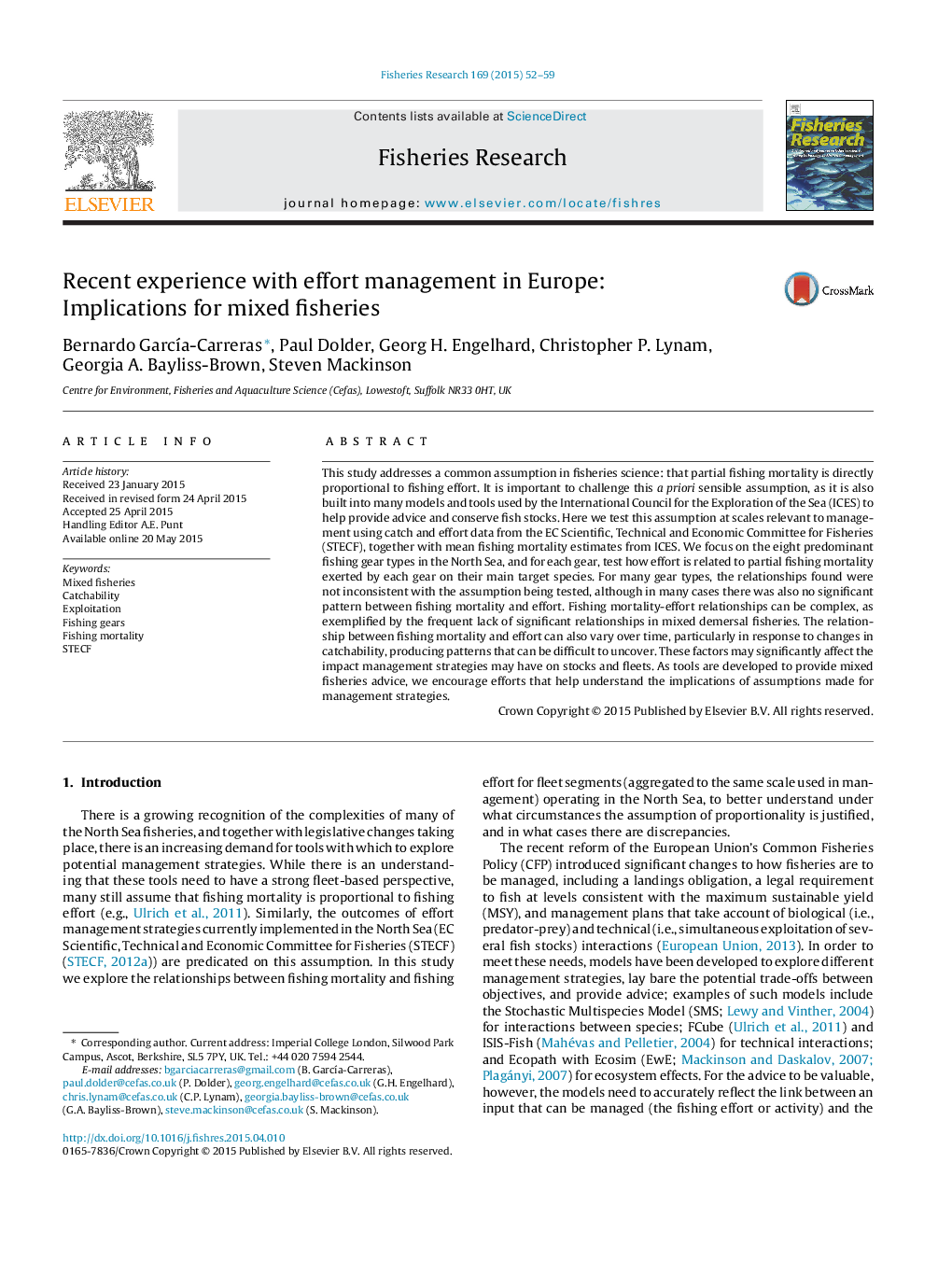| Article ID | Journal | Published Year | Pages | File Type |
|---|---|---|---|---|
| 4542848 | Fisheries Research | 2015 | 8 Pages |
•We challenge a very common assumption: that effort and F are proportional.•This is tested at a scale relevant to EU fisheries management: the North Sea.•For some fleets, e.g., otter trawlers catching cod, the assumption held.•However, for most fleets, the F-effort relationship was not significant.•Overall, our results suggest effort management may not control F in mixed fisheries.
This study addresses a common assumption in fisheries science: that partial fishing mortality is directly proportional to fishing effort. It is important to challenge this a priori sensible assumption, as it is also built into many models and tools used by the International Council for the Exploration of the Sea (ICES) to help provide advice and conserve fish stocks. Here we test this assumption at scales relevant to management using catch and effort data from the EC Scientific, Technical and Economic Committee for Fisheries (STECF), together with mean fishing mortality estimates from ICES. We focus on the eight predominant fishing gear types in the North Sea, and for each gear, test how effort is related to partial fishing mortality exerted by each gear on their main target species. For many gear types, the relationships found were not inconsistent with the assumption being tested, although in many cases there was also no significant pattern between fishing mortality and effort. Fishing mortality-effort relationships can be complex, as exemplified by the frequent lack of significant relationships in mixed demersal fisheries. The relationship between fishing mortality and effort can also vary over time, particularly in response to changes in catchability, producing patterns that can be difficult to uncover. These factors may significantly affect the impact management strategies may have on stocks and fleets. As tools are developed to provide mixed fisheries advice, we encourage efforts that help understand the implications of assumptions made for management strategies.
